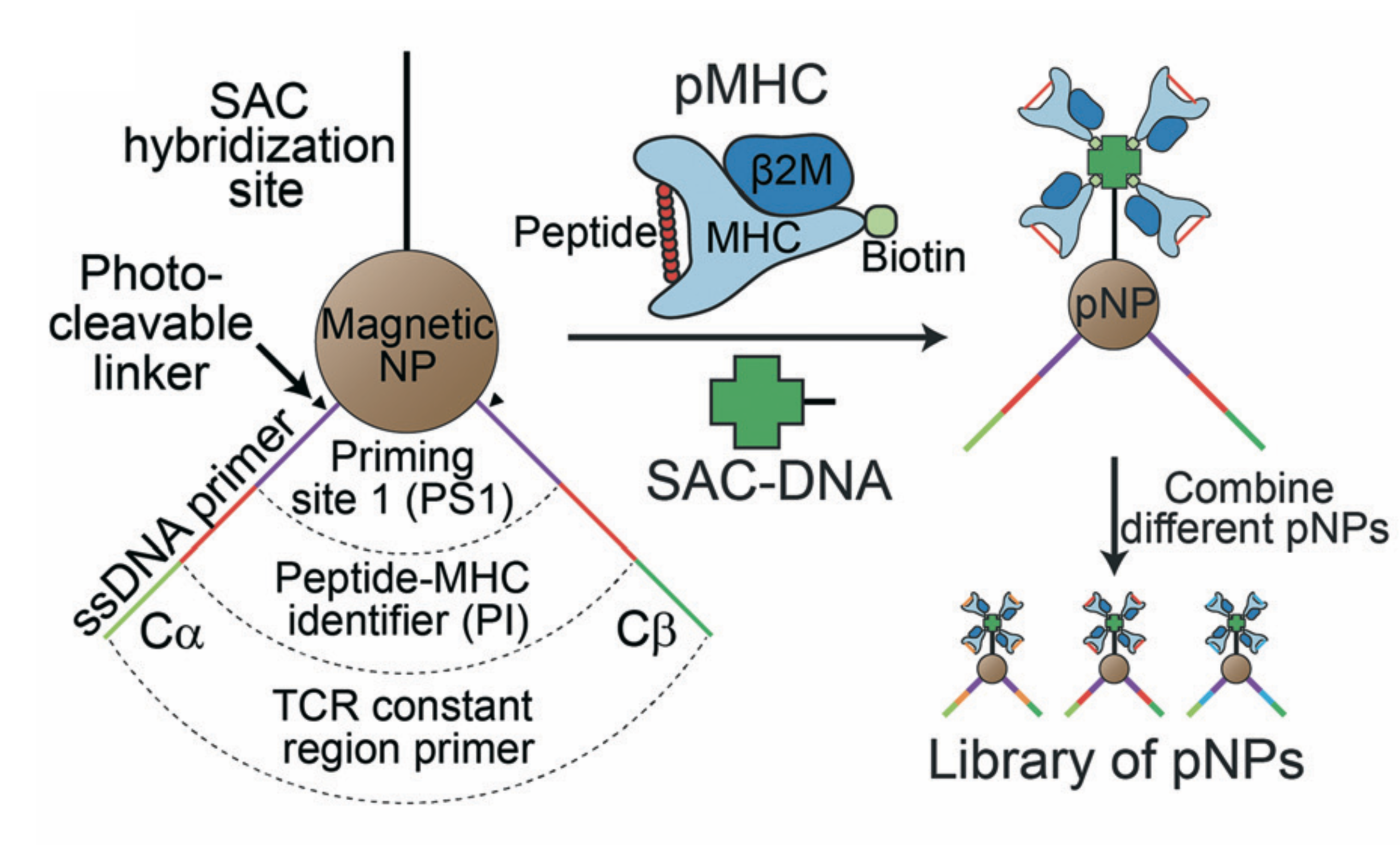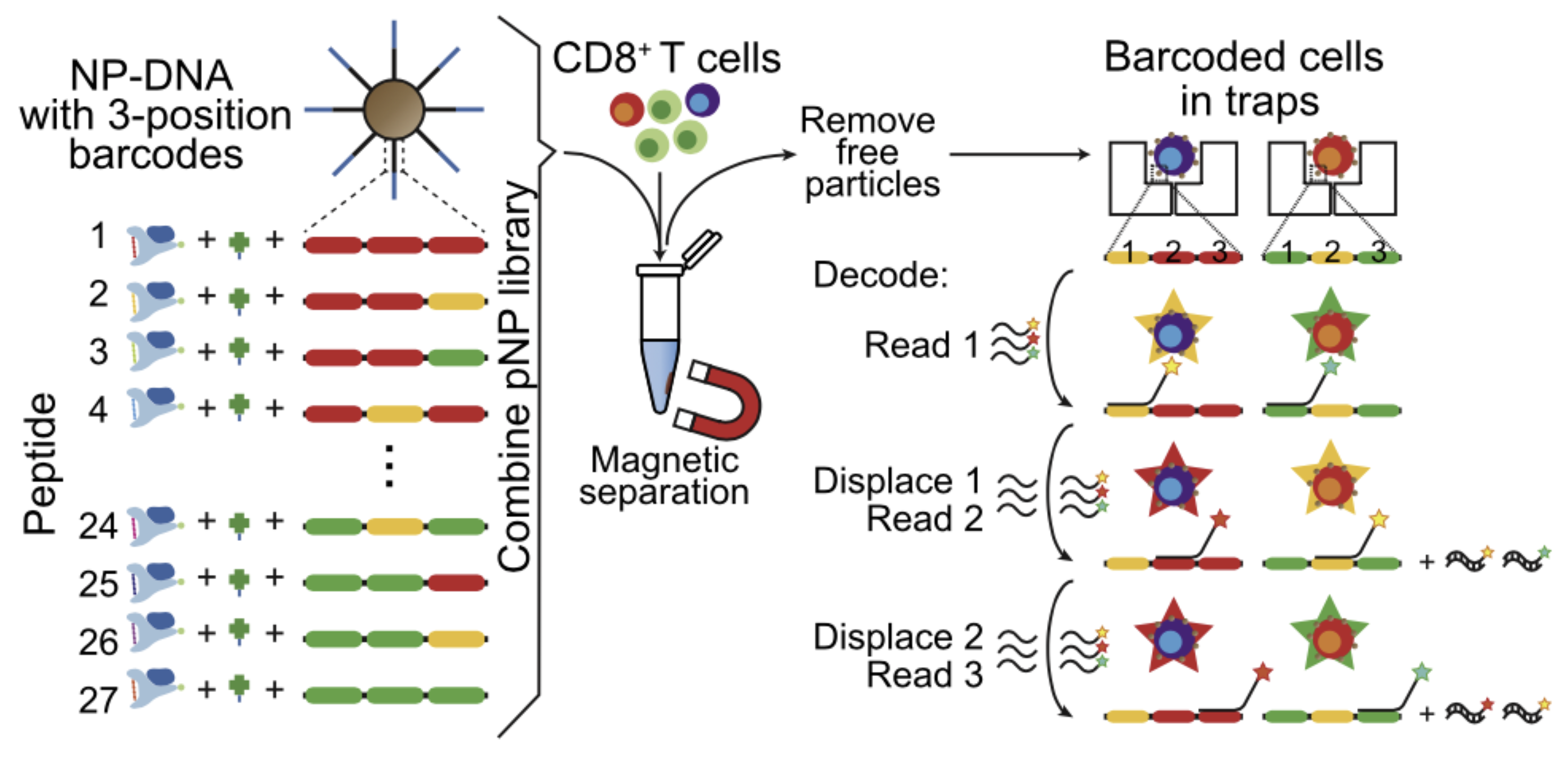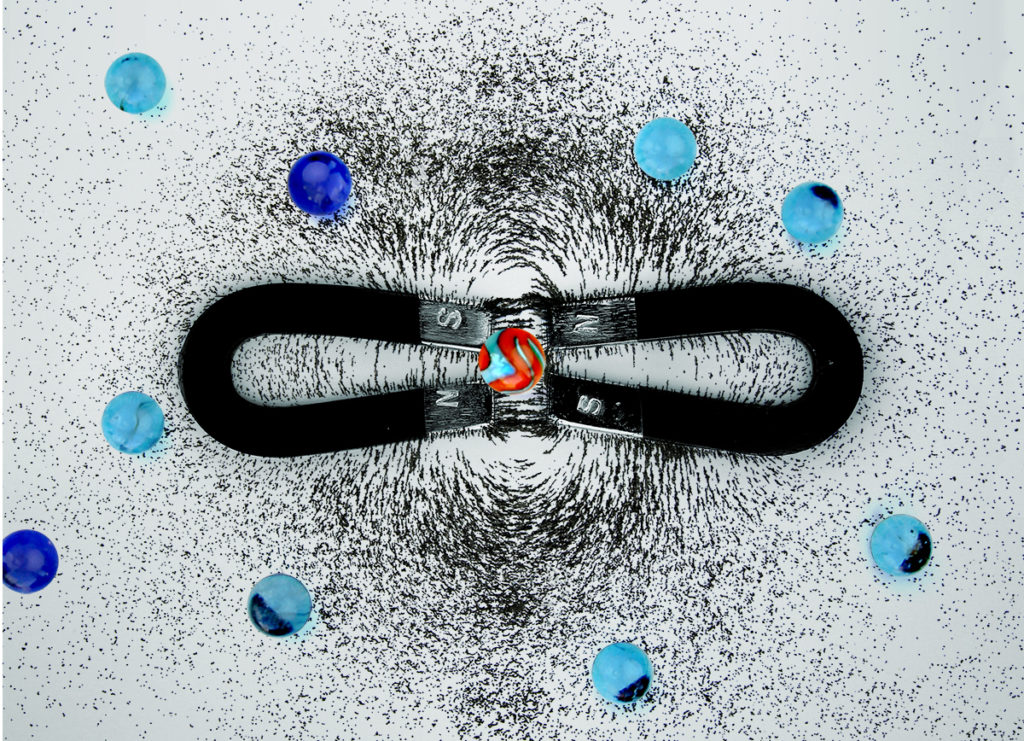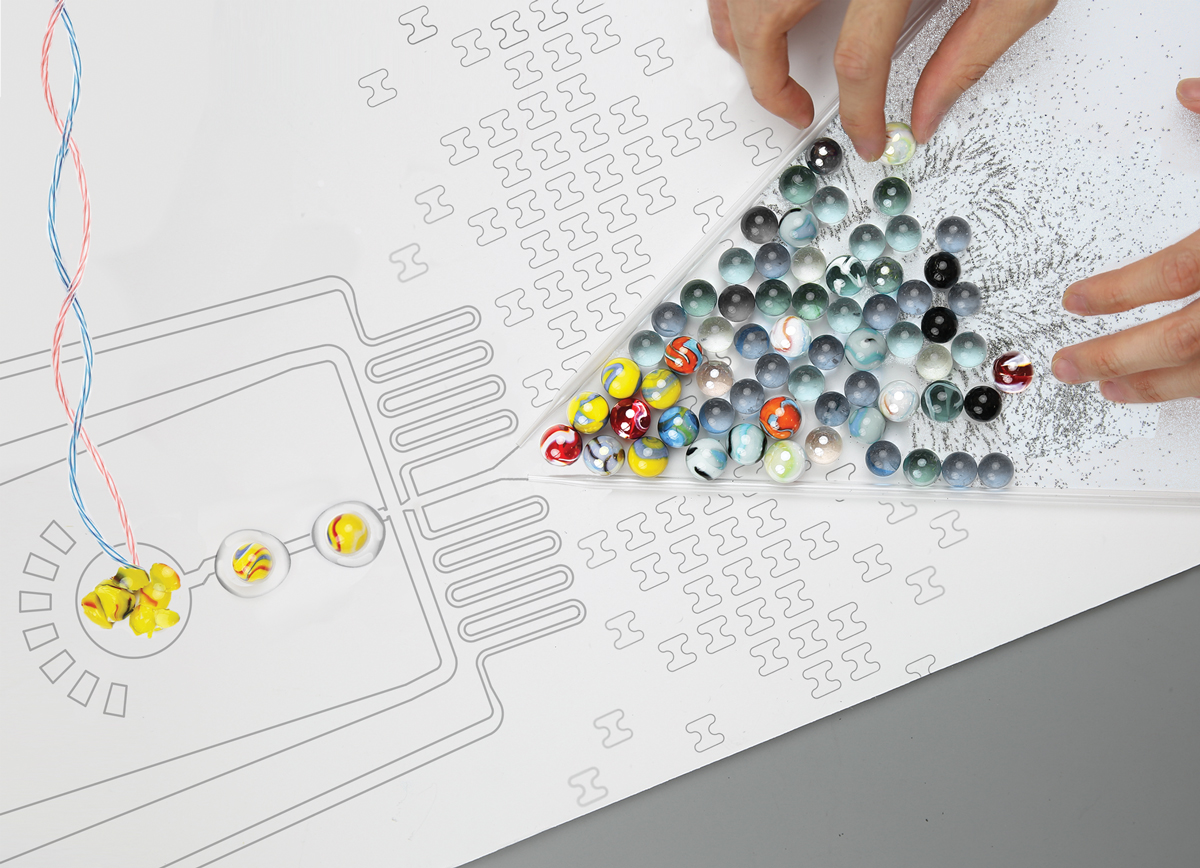The development of personalized therapies is an outstanding challenge in cancer immunology that hinges upon an understanding of the MHC-peptide-TCR interaction. Our group is focused on developing technologies to identify and elucidate CD8+ T cells, which are key to adoptive cell therapies and vaccines.
Our molecular methods utilize DNA-barcoded, magnetic nanoparticles coated with peptide-MHC complexes to capture neoantigen-specific T cells. Captured T cells are then filtered through microfluidic devices (fabricated in-house) to enumerate neoantigen reactivity. We also design microfluidic devices to enable in-droplet mRNA sequencing of T cells, which allows for association of T-cell receptor sequence with each reactive neoantigen. The primary technological methods used in our lab consist of genetic engineering, protein engineering/expression, microfluidic device design/fabrication/application, and traditional cell culture/sorting techniques.
Our computational methods consist of large scale molecular dynamics calculations on peptide-MHC interactions, which are experimentally validated through protein assays.

High avidity peptide-MHC-presenting NPs are designed to capture TCR α or β chain mRNA for sequencing and transfer the identity of the antigen to the mRNA during RT-PCR.

Nanoparticle-barcoded nucleic acid cell sorting on patient CD8+ tumor infiltrating lymphocytes by mixing a 27-element barcoded pNP library with the specimen.
Featured Publications
Sensitive Detection and Analysis of Neoantigen Specific T Cell Populations from Tumors and Blood, Cell Reports (2019). Go to→
MATE-Seq: microfluidic antigen-TCR engagement sequencing. Lab on a Chip (2019). Go to→
Collaborators
Current efforts in the Heath lab are focused on collaborations with labs from UCLA (Antoni Ribas, M.D., Robert Prins, Ph.D., Owen Witte, M.D.), Fred Hutch (Roland Strong, Ph.D., John Lee, M.D., Ph.D.), MD Anderson (Cassian Yee, M.D.), and Caltech (William Goddard, Ph.D. and David Baltimore, Ph.D.) with a primary interest in melanoma, prostate cancer, and glioblastoma. The Heath lab, in a partnership with the Parker Institute for Cancer Immunotherapy, is applying aforementioned technologies towards the Tumor Neoantigen Selection Alliance (TESLA) project to better understand and develop neoantigen prediction methods.



 heath.isbscience.org/research/cancer-immunotherapy/
heath.isbscience.org/research/cancer-immunotherapy/
